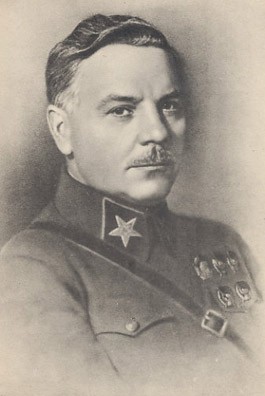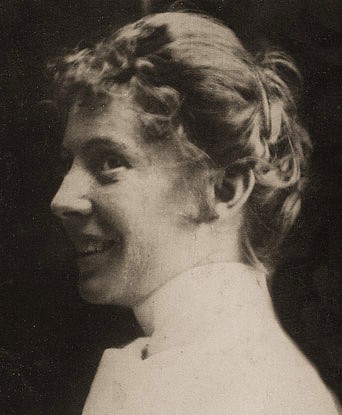Vo
Vogt, Karl (1817-1895)
German scientist, who moved to Switzerland. Subject of criticism in Marx's Herr Vogt.
Voitlasky, Vladimir Sysvelevich (1887-1960)
Bolshevik. Joined Mensheviks after April Conference, 1917. Military Commissar of Provisional Government for the Northern Front. After October, member Georgian Menshevik Government. In emigration, Professor of Economics, John Hopkins University, U.S.A.
Vollmar, Georg Heinrich (1850 - 1922)
German Social-Democrat, former officer, who joined the Social-Democrats at the end of the 1870's. He edited the Zurich Sozial-Demokrat 1879-80 and was a member of the Reichstag 1881-88 and 1890-1903; during the period of the Socialist Law a supporter of the revolutionary tactics. After the beginning of the 1890's he became a reformist leader and ideologist: at the Erfurt Party Congress (1891) he came out in favour of the peaceful transition to socialism by means of "measures of state socialism"; at the Frankfort Party Congress (1894) he brought forward, on behalf of the Bavarian Social-Democrats, a programme which foreshadowed an alliance with the wealthy peasantry and a vote for a bourgeois state budget.
Voloshinov, Valentin Nikolaevich (1895-1936)
Russian linguist, whose work has been influential in the field of literary theory and the Marxist theory of ideology.
Voloshinov’s Marxism and the Philosophy of Language draws its main ideas from Wilhelm von Humboldt’s concept of language and Saussure’s structuralism plus Voloshinov’s contemporary, Nikolai Marr as well as his participation in the Bakhtin Circle,. There is dispute over the authorship of Voloshinov’s work, some of which is attributed to Bakhtin.
For Voloshinov, language is the medium of ideology. Language is a socially constructed sign-system, a material reality which is the necessary preconditions for consciousness. Voloshinov criticised Saussure’s unhistorical structuralism, claiming that words are dynamic social signs, which take different meanings for different social classes in different historical contexts. Meaning therefore includes the active participation of both the speaker (or writer) and hearer (or reader). While every word is a sign taken from among available signs, the manipulation of the word contained in each individual utterance is regulated by social relations. Voloshinov claims that there is a continuous class struggle over the meaning of words. Because the ‘struggle for meaning’ coincides with class struggle, Voloshinov can be seen as anticipating Gramsci’s conception of ideology and language.
The Bakhtin Circle addressed the social and cultural issues posed by the Russian Revolution and its degeneration under Stalin in philosophical terms. Members included Matvei Isaevich Kagan (1889-1937); Pavel Nikolaevich Medvedev (1891-1938); Lev Vasilievich Pumpianskii (1891-1940); Ivan Ivanovich Sollertinskii (1902-1944), Voloshinov and others
The circle began meeting in the Belorussian towns of Nevel and Vitebsk in 1918 before moving to Leningrad in 1924. Their group meetings were terminated due to the arrest of many of the group in 1929. Voloshinov worked at the Herzen Pedagogical Institute in Leningrad until 1934 when he contracted tuberculosis. He died in a sanitorium two year later.
See Voloshinov Archive.
Voltaire, Francois (1694-1778)
 French writer philosopher and historian, with Diderot, a leader of the French Enlightenment. Held that matter moves according to eternal (Newtonian) laws, but God is the "prime mover", the principle of action inherent in Nature, thus rejecting the idea of a separate "soul" or an "interventionist" God. Was a supporter of constitutional monarchy till later in life when he favoured a republic.
French writer philosopher and historian, with Diderot, a leader of the French Enlightenment. Held that matter moves according to eternal (Newtonian) laws, but God is the "prime mover", the principle of action inherent in Nature, thus rejecting the idea of a separate "soul" or an "interventionist" God. Was a supporter of constitutional monarchy till later in life when he favoured a republic.
Vorontsov, Vasily (1847-1918)
Russian populist economist. For a peasant based communal economy. Vigorously opposed to Russian Marxism.
Voroshilov, Kliment (1881-1969)
 Old Bolshevik, was commissar of war, 1925-40, and president of the USSR, 1953-60. He was believed to sympathize with some of the ideas of the Right Opposition but went along with Stalin, possibly because of blackmail.
Old Bolshevik, was commissar of war, 1925-40, and president of the USSR, 1953-60. He was believed to sympathize with some of the ideas of the Right Opposition but went along with Stalin, possibly because of blackmail.
Vorse, Mary Heaton (1907-1966)
 Mary Heaton Vorse was known mainly for her reportage on American labor stuggles and strikes, but she also wrote fiction and poetry. She published a total of eighteen books and hundreds of articles for such journals as, McCall's, Harper's, Masses, New Masses, and New Republic, as well as for news services and newspapers. She reported on stikes such as the 1912 Lawrence textile strike, the 1919 steel strike, the Passaic textile strikes of the 1920s, the sit-down strikes of 1937, as well as on other topics such as child welfare issues and wars. See a collection of her writings in the Women and Marxism: Mary Heaton Vorse page.
Mary Heaton Vorse was known mainly for her reportage on American labor stuggles and strikes, but she also wrote fiction and poetry. She published a total of eighteen books and hundreds of articles for such journals as, McCall's, Harper's, Masses, New Masses, and New Republic, as well as for news services and newspapers. She reported on stikes such as the 1912 Lawrence textile strike, the 1919 steel strike, the Passaic textile strikes of the 1920s, the sit-down strikes of 1937, as well as on other topics such as child welfare issues and wars. See a collection of her writings in the Women and Marxism: Mary Heaton Vorse page.